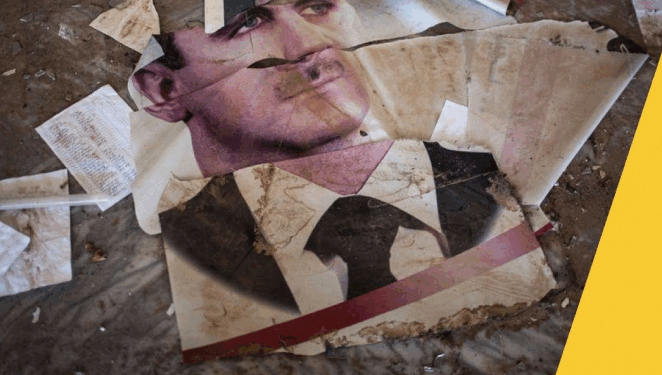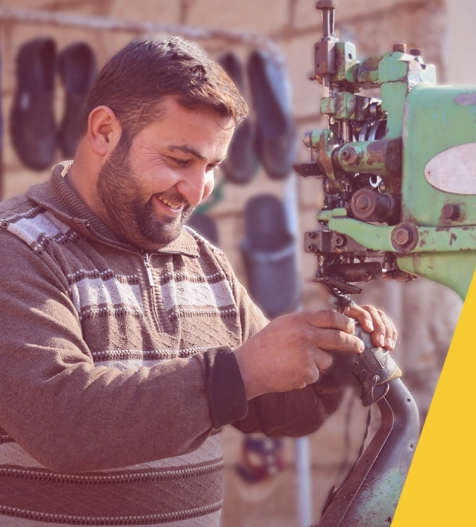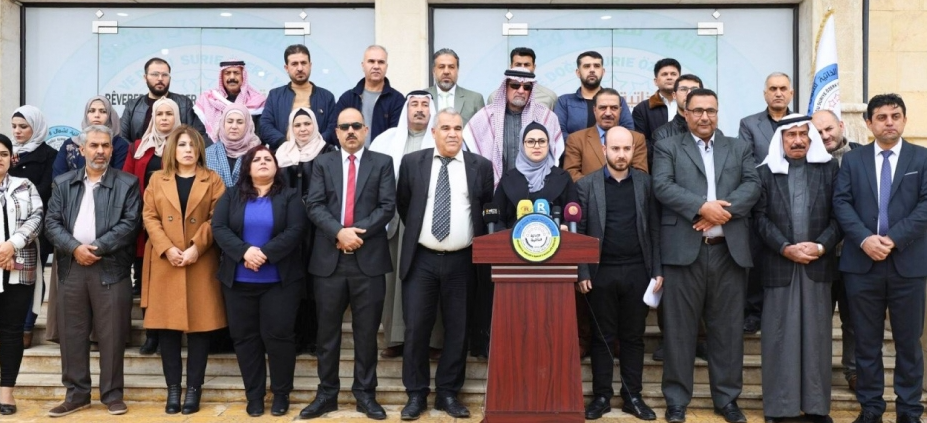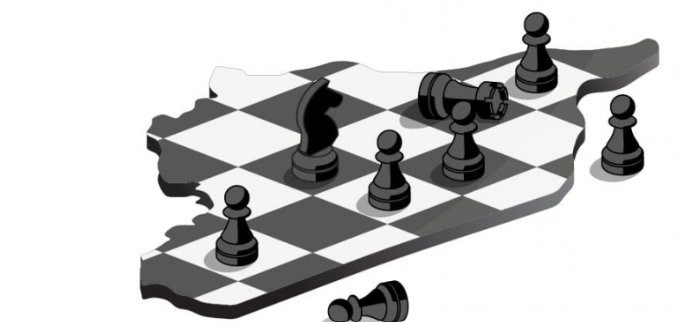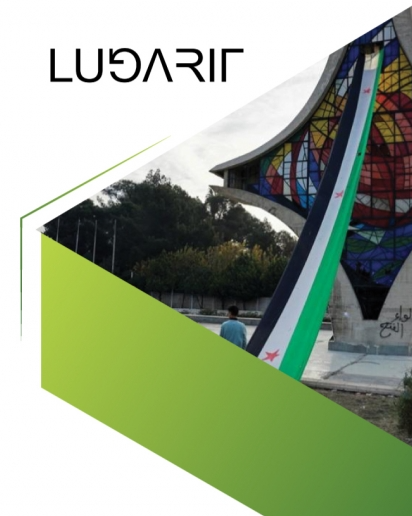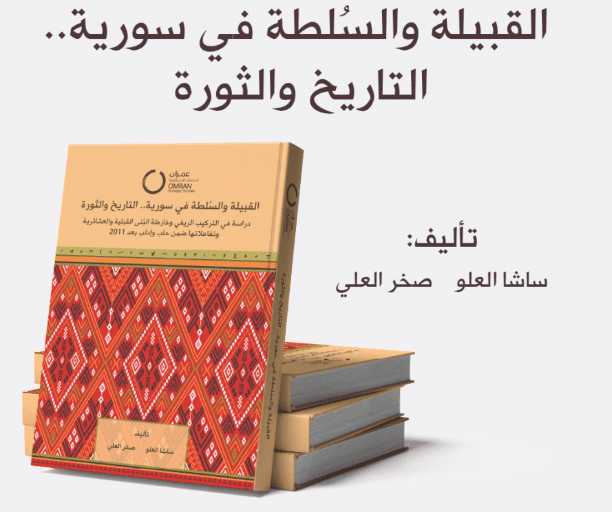Just days after the fall of the Assad regime, tensions erupted on the Syrian coast. These protests took the form of peaceful demonstrations and protests, varying in their motivations, geographic scope, and demands. On the other hand, these demonstrations took a violent turn, with sporadic attacks targeting fighters and security forces loyal to the new government in Damascus, resulting in casualties. Although the situation on the coast has temporarily stabilized due to community efforts and security campaigns, and regional and international powers may have played a role in this, the manifestations of both peaceful and violent protests suggest apprehension about the new administration in the Syrian coastal region. This requires an analysis of the factors behind this apprehension, its consequences, and the policies that can be proposed to calm the Syrian coast. Tartous Governorate provides a good example for a preliminary reading of the protests on the Syrian coast. The governorate, established in 1966 for several reasons, is predominantly Alawite. It is also known as the “Mother of Martyrs,” a reference to the support its residents provided to defend the defunct Assad regime. Furthermore, it is the home of many influential figures in state institutions and the regime’s informal networks, and it witnessed one of the bloodiest confrontations against representatives of the new authority in Damascus.
Tartous Tensions: Beyond Sectarian and Security Factors
Sectarian and security approaches have long been key to understanding politics in Syria at the national and local levels, but they are insufficient to explain the recent tensions in Tartous Governorate, which requires a more comprehensive approach.
The role of remnants of the former regime in creating security chaos in the Syrian coastal region cannot be ignored, particularly in Tartous Governorate, where a number of senior regime officials hail. Furthermore, statements by Iranian officials have been interpreted as Tehran’s willingness to support any rebellion against the new regime in the coastal region. However, limiting this to the above is insufficient to understand the recent tensions, both peaceful and violent, in the governorate. Tartous Governorate is inhabited by Alawites, who during the Ottoman era were concentrated in the countryside, excluding the main cities, which remained the exclusive domain of Sunnis and Christians. ([1]) The governorate is also inhabited by religious minorities, such as Ismailis and Murshidis. This changed beginning in the 1950s with the influx of Alawites to the cities, driven by economic modernization and the expansion of the public sector. Furthermore, Alawite figures assumed prominent civil and military positions with Hafez al-Assad’s rise to power. ([2]) Objective statistics regarding the distribution of sects in Tartous Governorate are currently unavailable, but it is likely that Alawites constitute the majority of its population. This has led some researchers to not ignore this dimension in explaining its establishment as a governorate in 1966. ([3])
With the outbreak of the Syrian revolution, the emphasis on religion/sect as a bond of cohesion for Alawites increased. This was due to the expansion of the protest movement and the strengthening of its Islamic character, along with the revitalization of the role of Alawite clerics in the regime’s informal networks at the local level, with them assuming central roles in the mobilization and recruitment of fighters. On the one hand, in addition to relying on them as channels of communication and providing support and community care to the Alawites, given the weak presence and capabilities of central state institutions, the transformation of Alawite religious centers into community hubs for meeting and communication among Alawites has been a major factor in the transformation of the Alawite community. Following the fall of the Assad regime, the clarity of the religious identity of the new authority in Damascus, and the emphasis placed by regional and international states on the need to protect minorities, played a role in strengthening the presence of the sectarian dimension among the Alawites as a determining factor in their self-perception and relationship with others. This is evident in the coastal demonstrations’ invocation of sectarian identity slogans in response to the burning and vandalism of an Alawite shrine in Aleppo (Imam al-Khusibi). The presence of the sectarian dimension in the demonstrations can also be interpreted as an acknowledgment by the Alawites of their new status as a religious minority, having previously been a minority in power, and the necessity of treating them accordingly by Damascus, with the special status and privileges it entails. The protection of minorities was apparently one of the stringent international and regional conditions imposed on those in power in Damascus.
Furthermore, the residents of Tartous Governorate have long relied on the state for their economic survival, whether as civil servants or in the army and security services. While the state provided opportunities for acceptable living stability and a framework for protection before the outbreak of the Syrian revolution, its ability to provide this has declined significantly as a result of sanctions, the depletion and destruction of state resources, as well as the Assad regime’s corrupt practices and the encroachment of its patronage networks at the expense of state institutions. This has driven many residents to seek alternative options for survival, given the governorate’s weak private sector. These options have included working within the regime’s informal networks, such as joining local militias and private security companies, and working with merchants and warlords in illegal activities such as escorting and smuggling. The fall of Assad had undeniable economic repercussions on the lives of Alawites. On the one hand, the regime’s informal networks, which provided them with a source of livelihood, were severely damaged. Furthermore, the new authorities’ decisions to dismiss a number of civil servants, such as those at the Tartous Health Directorate, created fears among Alawites that they would be excluded from the state, perceived as loyal to the former regime. This would mean losing their source of livelihood and the economic benefits they had access to through their jobs. These fears were reinforced by the dissolution of the army and security services, in which Alawites had a significant presence, despite the lack of clarity on their role in the planned military and security institutions. This may have prompted them to protest against the new authorities’ decisions. ([4])
The Syrian revolution had an impact on changing local politics in Tartous Governorate, revitalizing and complicating it with the weakening of the central authority. This revolution added new players, including merchants and warlords, to the existing players, namely the prominent traditional families. ([5]) The revitalization and complexity of local politics can be seen in the protest movement that the governorate has witnessed since 2015. ([6]) The regime attempted to contain these protests by expanding its informal networks on the one hand, and appeasing the prominent traditional families and incorporating other emerging families into local political arrangements on the other.
The fall of the Assad regime has profoundly shaken the existing local social and political system in Tartous Governorate. With the new authorities in Damascus appointing figures to manage the coastal security and services sector, it appears that these figures do not yet include Alawites. Alawites have lost their official and unofficial channels of communication with the new authorities. This has made them more likely to protest, given the disregard for their earlier demands, and the perception of protest as a mechanism for communicating their concerns.
The Outcomes of Protests and Ways to Deal With Them
The possibility of widespread protests in Tartous Governorate cannot be ruled out, despite the temporary calm the governorate has experienced as a result of the campaign and security measures launched by the Tartous Military Operations Directorate, as well as community efforts launched by Alawite men and dignitaries to calm the Alawite street. However, it is impossible to bet on this calm lasting. The underlying causes of protest remain unaddressed. Furthermore, there are countries that are unhappy with the emerging situation in Damascus and the attitudes of those in power toward it. They see the resentful and fearful Alawites as an opportunity to plunge the coast into chaos and perpetuate sectarian instability, weakening the new regime in Damascus in the hope of modifying its positions or overthrowing it.
Based on the above, and in order to ensure Syria’s stability, it is crucial for the new government in Damascus to take measures such as allaying Alawite fears regarding the prosecution of the regime’s criminals and remnants by announcing clear legal procedures to achieve justice and hold criminals accountable, emphasizing that accountability is on an individual, not collective, basis. Furthermore, controlling any abuses by the new government’s security and military forces in the performance of their duties, and providing institutional mechanisms for grievances and complaints against any violations, would contribute to allaying the fears of the Alawite public and making them feel that the new era does not repeat the behavior of the former regime, and that the new state is committed to the safety of its citizens and to achieving security and justice for them.
In addition to the above, it is important to examine the societal transformations that have occurred on the Syrian coast and understand the changes witnessed by the Alawites. This will help in selecting local intermediaries to serve as informal channels of communication with the new government until formal and institutional channels are established, allowing local communities on the coast to freely present their demands and concerns. It is also necessary to consider a decentralized framework at the local administrative level in Syria, based on regional and economic considerations, not sectarian or ethnic ones. This framework would allow local communities broad powers to manage their regions, provide services, and ease the burden on the central authority. This should be complemented by acceptable representation of local communities in state institutions. This would establish a balanced relationship between the center and local communities, bringing them closer to Damascus than any external forces seeking to tamper with Syria’s security and stability.
Ultimately, there is no doubt that the state bureaucracy is expanding, placing a burden on its resources and the performance of its institutions. However, it is essential to avoid dismissing state employees during the transitional phase, leaving this matter to be addressed comprehensively and participatoryly, consistent with the vision of rebuilding and empowering state institutions. Dismissing employees now without creating alternative economic options will only heighten concerns among stakeholders and create grievances. It will also add to the ranks of the unemployed, adding to those already displaced by the dissolution of the military and security establishments. This will increase the likelihood that they will become a source of instability and challenge to the new government.


